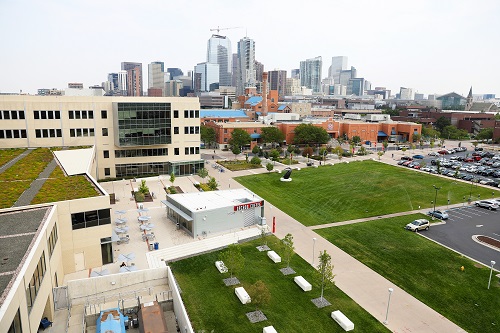Early Bird
Budget Recommendation Committee recap
$23.1 million in new HEERF funding on its way to MSU Denver; compensation-subcommittee scenario planning; return of the EcoPass.
By Cory Phare
May 25, 2021
 The Budget Recommendation Committee kicked off its Friday meeting with news of $23.1 million in federal support for Metropolitan State University of Denver students.
The Budget Recommendation Committee kicked off its Friday meeting with news of $23.1 million in federal support for Metropolitan State University of Denver students.
The money is part of a third round of the Higher Education Emergency Relief Fund. MSU Denver received $15.5 million as part of the first round (known as CARES funding), of which $7.2 million went to students as direct grants and pandemic-related expenses such as cleaning supplies and online pedagogy. Some $19.2 million (from Coronavirus Response and Relief Supplemental Appropriations) was allocated after the second round of HEERF was approved in December.
This second round of funding consisted of another $7.2 million in direct aid to MSU Denver students, while the remainder can be allocated to revenue losses due to the pandemic, said George Middlemist, Ph.D., associate vice president of Administration/chief financial officer.
“These are one-time funds to invest in our students,” Middlemist said. “That means we won’t use them to create new positions with the money, but we’ll be able to do things like reengaging with folks who stopped out due to Covid or addressing our infrastructure.
“Thanks to this, we’ll be able to meet many of the needs our students have and provide them support.”
Middlemist noted that monies for a third round will likely not be in direct aid and that a task force is examining how best to allocate the funding. Restrictions indicate funds cannot be spent on areas such as advertising, endowment growth, specific capital projects (athletics, faith-affiliated, etc.) or executive salaries; the student portion of the third round cannot be applied directly to student accounts without individual approval and must be spent within one year.
Actionable information for students is expected to come soon.
Bill Henry, Ph.D., vice provost for Faculty Affairs, then provided a report on the compensation subcommittee, noting that the most common issues identified were underpayment and overwork.
“Our priority No. 1 and 1a to address this are finding ways to increase compensation for faculty and staff and trying to recoup positions and lines lost to budget cuts this past year,” Henry said.
What this looks like in practice is heavily contingent on enrollment, he added, then walked through different scenarios and the maneuverability they afford. For example, if fall enrollment is down 10% or more, that leaves the University realistically strapped for base-pay increases (stipends or one-time payments may be an option, however).
Other scenarios ranging from decreases of 9% to flat enrollment leading to possible pay increases of 2% to 4% were further discussed (this excludes Classified staff salaries, which are mandated by the state). Henry also addressed possibly targeting pay increases to bring lowest-paid employees to a reasonable level, noting that this may also create compression/inversion issues.
“It’s a complicated equation with lots to think about,” Henry said. “So much depends on enrollment.”
Middlemist also provided an update on the return of the Regional Transportation District EcoPass. The transit option will be $135 per semester and will be available again at the Auraria Higher Education Center Parking/Transit Center office starting July 1, active through Dec. 31 (a new plan will need to be solidified for 2022).
Attendees were asked to bring information back to their constituents and provide feedback to the Budget Office by Friday, to be discussed at the June BRC meeting and formulated for full recommendations in July.
“That’s when we’ll start seeing a better picture of the enrollment trend, which is a critical factor in allowing us to move forward,” Middlemist said. “There’s a lot yet to come, but I believe we’re on a positive track to seeing a lot of good things at the University.”
Topics: Administration, Funding
Edit this page